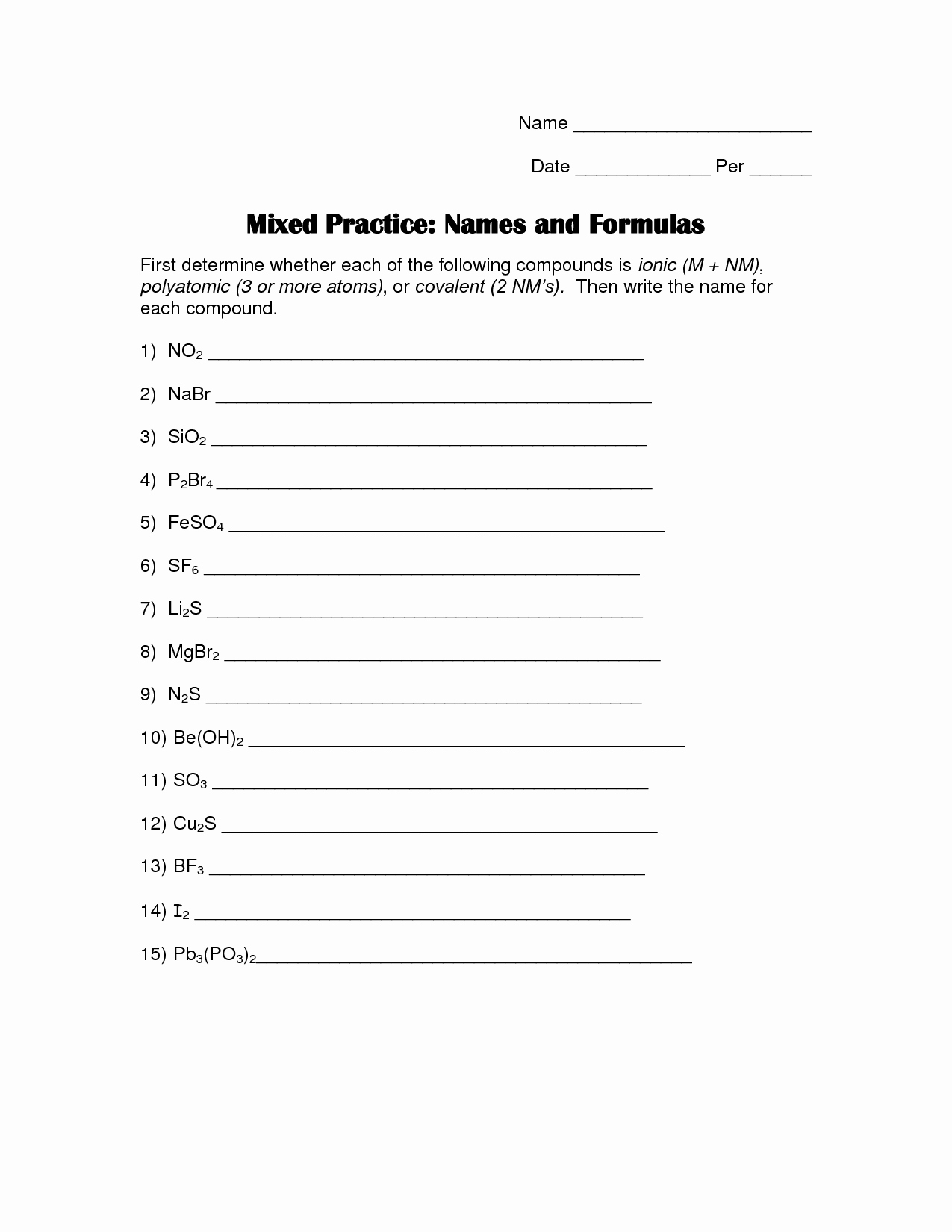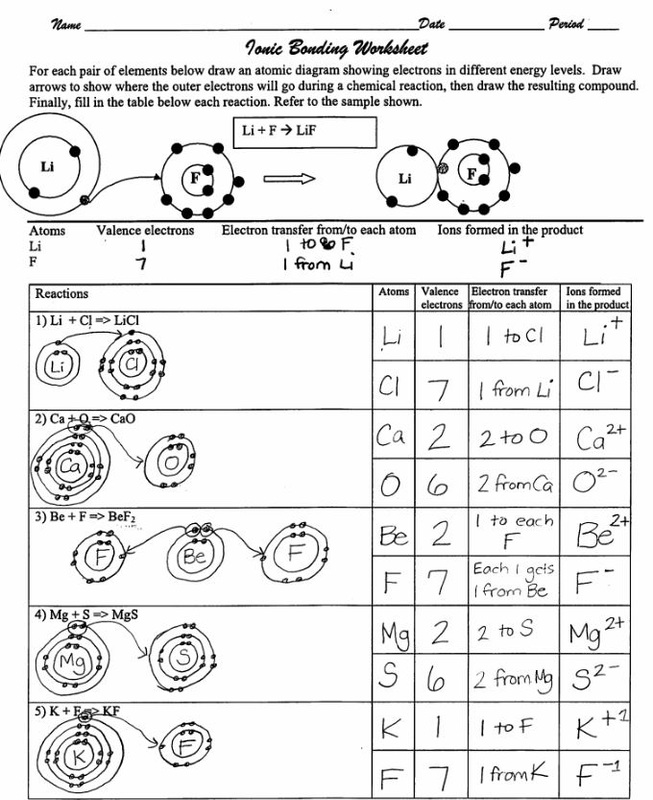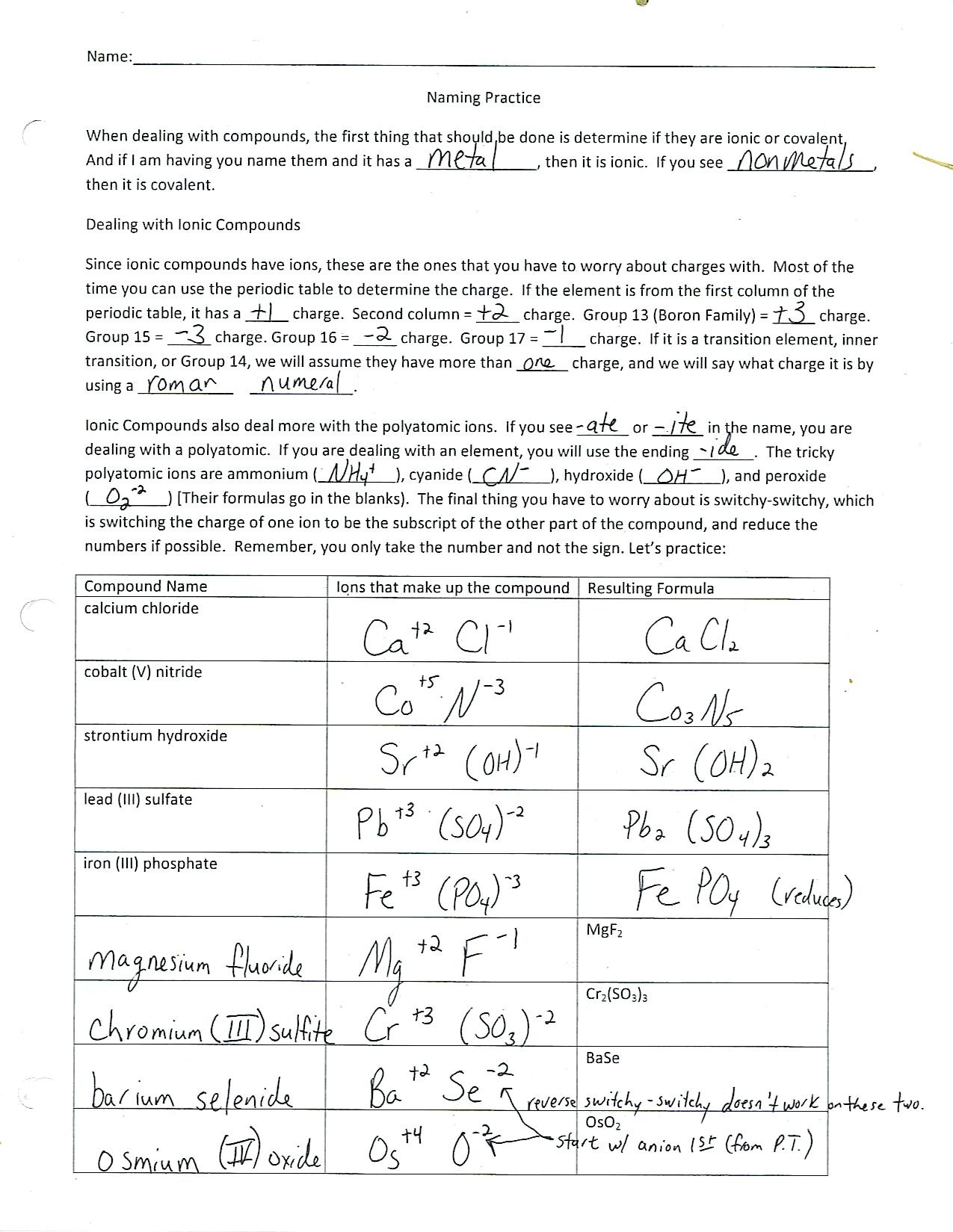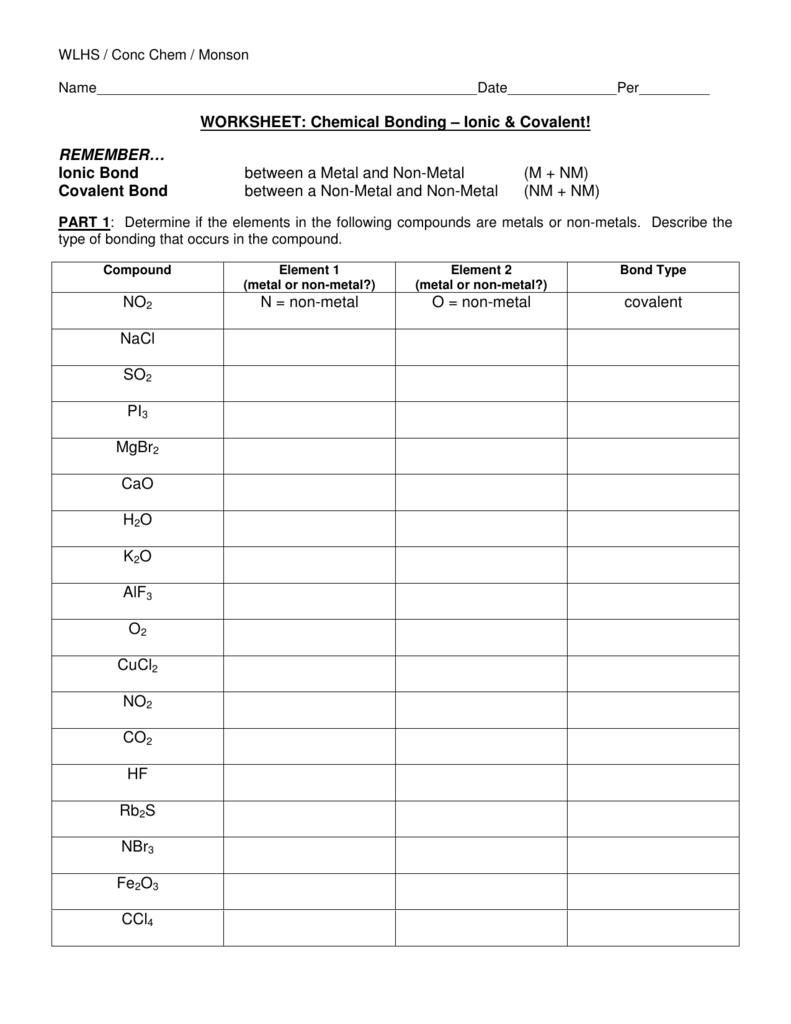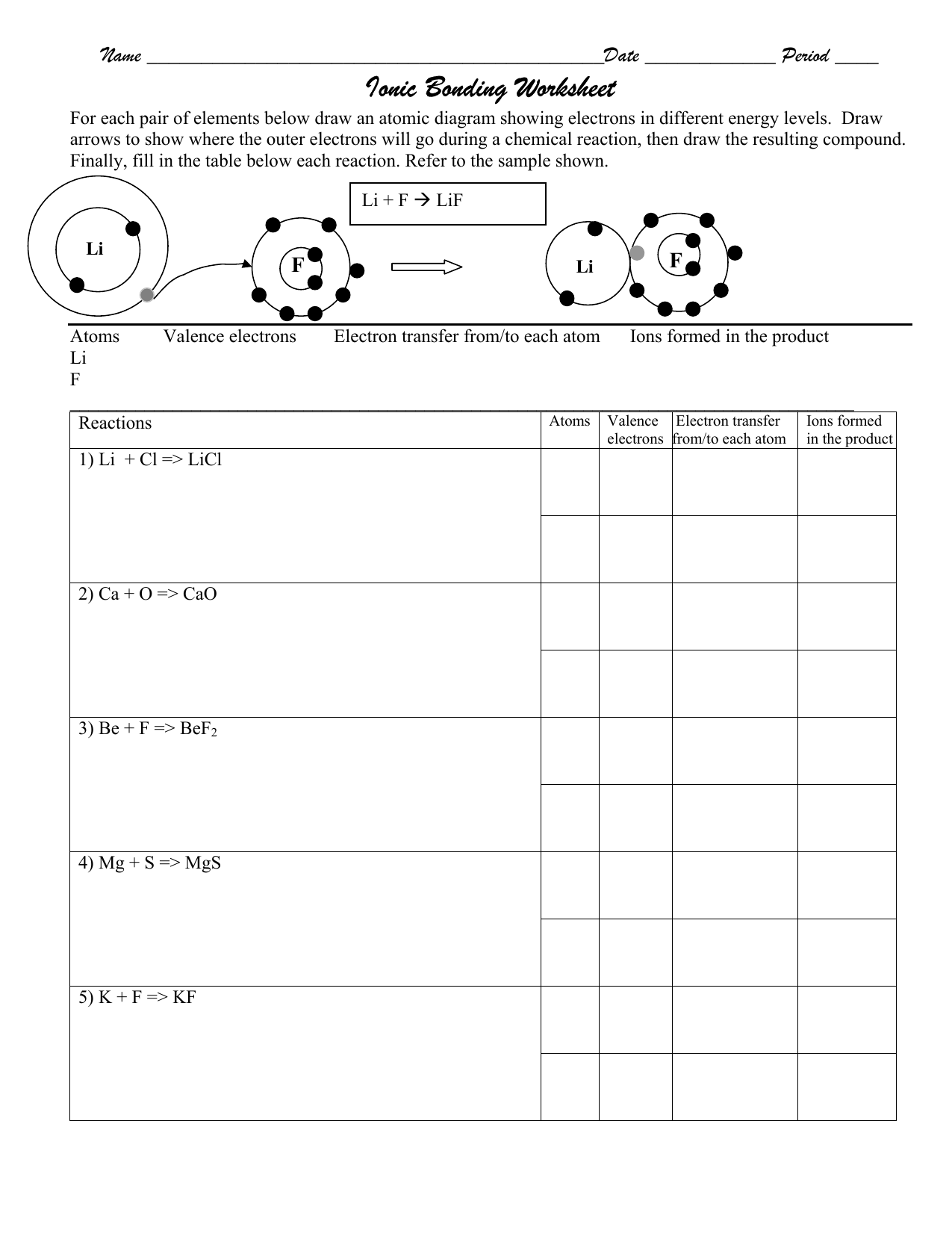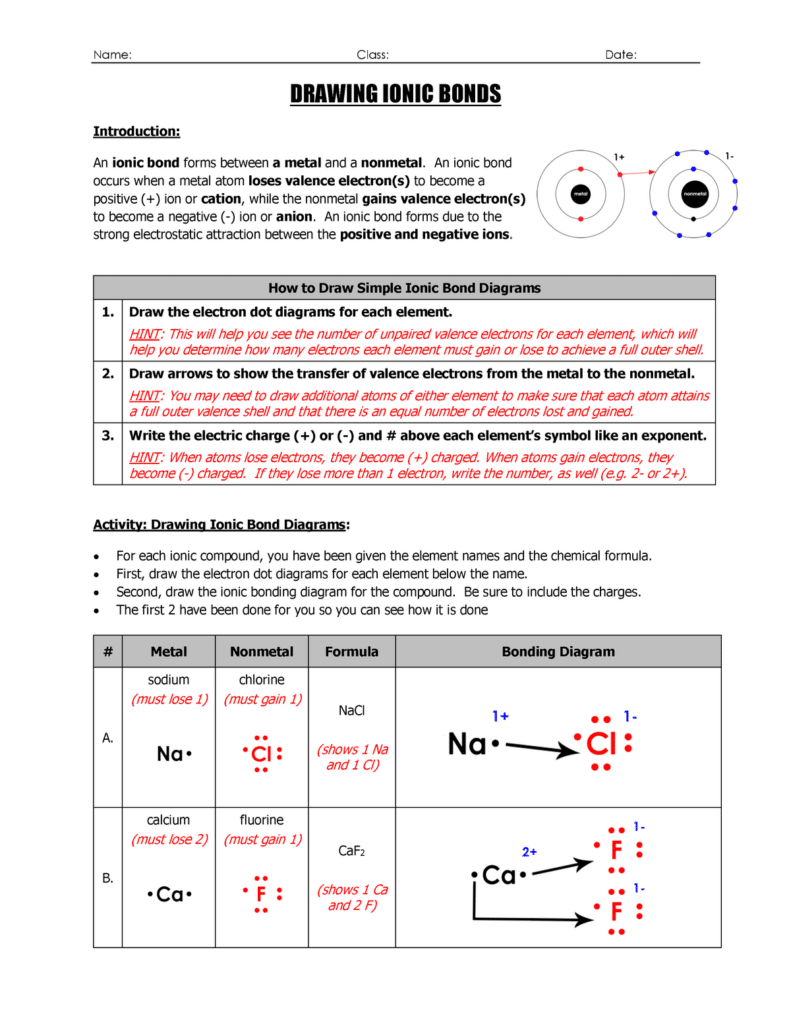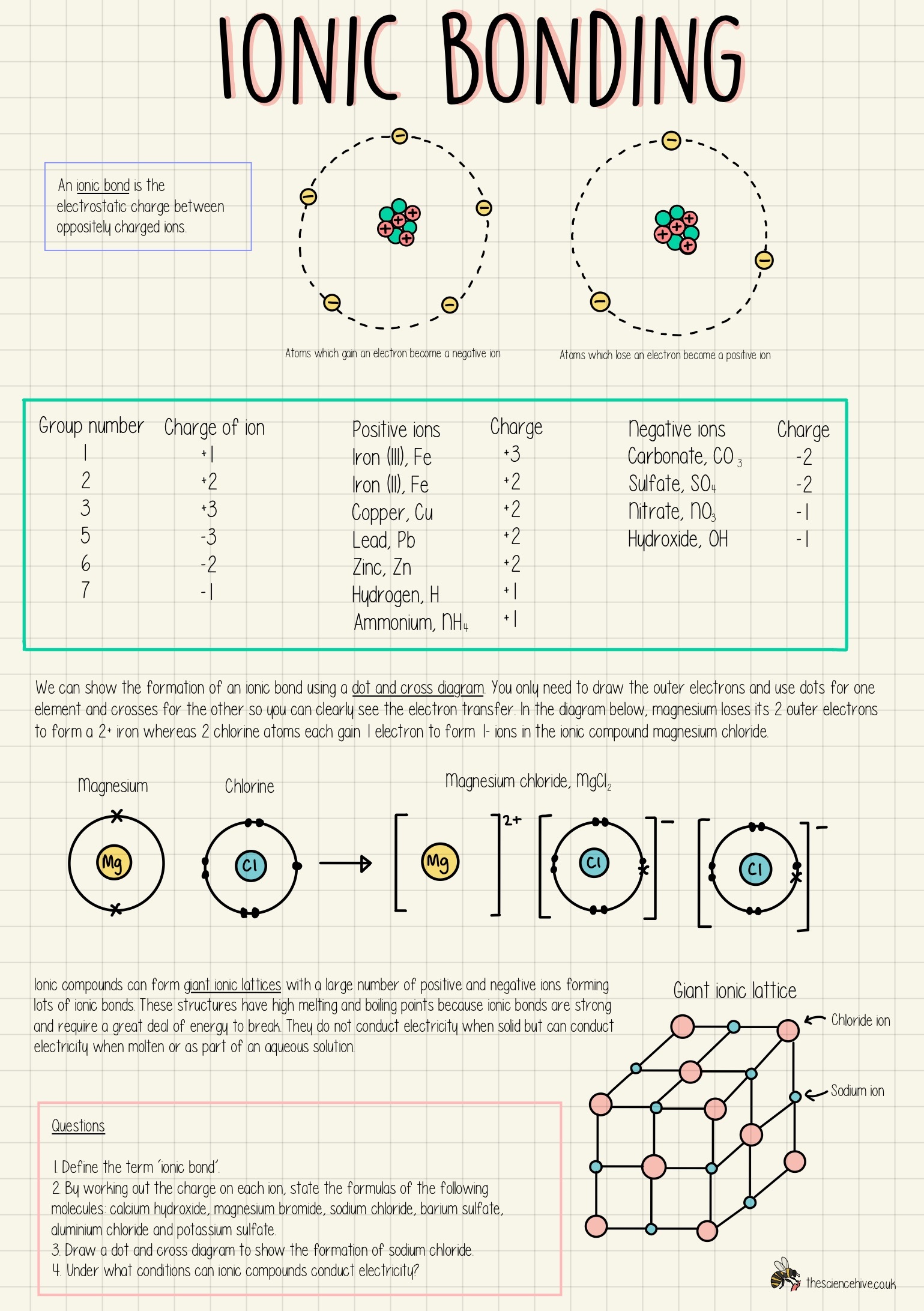Ionic Bonding Worksheet Answer Key Pdf - Ionic bonds occur when metal atoms transfer electrons to nonmetallic atoms. • in naming simple ionic compounds, the _____ is always first, the _____ second (e.g., sodium. Ion with a negative charge. The resulting cations and anions form very strong bonds. Atoms will transfer one or more electrons to another to form the bond. Ionic bonds • ionic bonds form between _____ and _____. What is an ionic bond?
Ionic bonds • ionic bonds form between _____ and _____. What is an ionic bond? Ionic bonds occur when metal atoms transfer electrons to nonmetallic atoms. Ion with a negative charge. • in naming simple ionic compounds, the _____ is always first, the _____ second (e.g., sodium. The resulting cations and anions form very strong bonds. Atoms will transfer one or more electrons to another to form the bond.
The resulting cations and anions form very strong bonds. What is an ionic bond? Ionic bonds occur when metal atoms transfer electrons to nonmetallic atoms. Atoms will transfer one or more electrons to another to form the bond. • in naming simple ionic compounds, the _____ is always first, the _____ second (e.g., sodium. Ionic bonds • ionic bonds form between _____ and _____. Ion with a negative charge.
Naming Ionic Bonds Worksheet
Ionic bonds • ionic bonds form between _____ and _____. The resulting cations and anions form very strong bonds. • in naming simple ionic compounds, the _____ is always first, the _____ second (e.g., sodium. What is an ionic bond? Ionic bonds occur when metal atoms transfer electrons to nonmetallic atoms.
Gcse Chemistry Ionic Bonding Worksheet
Ion with a negative charge. Atoms will transfer one or more electrons to another to form the bond. Ionic bonds • ionic bonds form between _____ and _____. • in naming simple ionic compounds, the _____ is always first, the _____ second (e.g., sodium. What is an ionic bond?
Ionic Bonding Worksheet Doc
Atoms will transfer one or more electrons to another to form the bond. Ionic bonds • ionic bonds form between _____ and _____. The resulting cations and anions form very strong bonds. Ionic bonds occur when metal atoms transfer electrons to nonmetallic atoms. What is an ionic bond?
Ionic And Covalent Bonding Worksheets With Answers
The resulting cations and anions form very strong bonds. • in naming simple ionic compounds, the _____ is always first, the _____ second (e.g., sodium. Ion with a negative charge. What is an ionic bond? Atoms will transfer one or more electrons to another to form the bond.
Boardworks Science Chemistry Ionic Bonding Worksheet Answer Key
What is an ionic bond? Ion with a negative charge. Ionic bonds • ionic bonds form between _____ and _____. Ionic bonds occur when metal atoms transfer electrons to nonmetallic atoms. • in naming simple ionic compounds, the _____ is always first, the _____ second (e.g., sodium.
Ionic Bonding Worksheet
• in naming simple ionic compounds, the _____ is always first, the _____ second (e.g., sodium. Atoms will transfer one or more electrons to another to form the bond. Ionic bonds occur when metal atoms transfer electrons to nonmetallic atoms. Ionic bonds • ionic bonds form between _____ and _____. What is an ionic bond?
Ionic Bonding Worksheets Chemistry
Atoms will transfer one or more electrons to another to form the bond. Ionic bonds • ionic bonds form between _____ and _____. Ion with a negative charge. The resulting cations and anions form very strong bonds. Ionic bonds occur when metal atoms transfer electrons to nonmetallic atoms.
ReadytoUse Ionic Bonding Worksheet for Chemistry Students The Teach
• in naming simple ionic compounds, the _____ is always first, the _____ second (e.g., sodium. Atoms will transfer one or more electrons to another to form the bond. What is an ionic bond? Ionic bonds • ionic bonds form between _____ and _____. Ionic bonds occur when metal atoms transfer electrons to nonmetallic atoms.
Ionic Bonding Worksheet 1 Answer Key. Web the most common type of ionic
What is an ionic bond? Atoms will transfer one or more electrons to another to form the bond. Ionic bonds occur when metal atoms transfer electrons to nonmetallic atoms. Ionic bonds • ionic bonds form between _____ and _____. Ion with a negative charge.
Ionic Bonds • Ionic Bonds Form Between _____ And _____.
What is an ionic bond? Ion with a negative charge. Atoms will transfer one or more electrons to another to form the bond. • in naming simple ionic compounds, the _____ is always first, the _____ second (e.g., sodium.
Ionic Bonds Occur When Metal Atoms Transfer Electrons To Nonmetallic Atoms.
The resulting cations and anions form very strong bonds.
